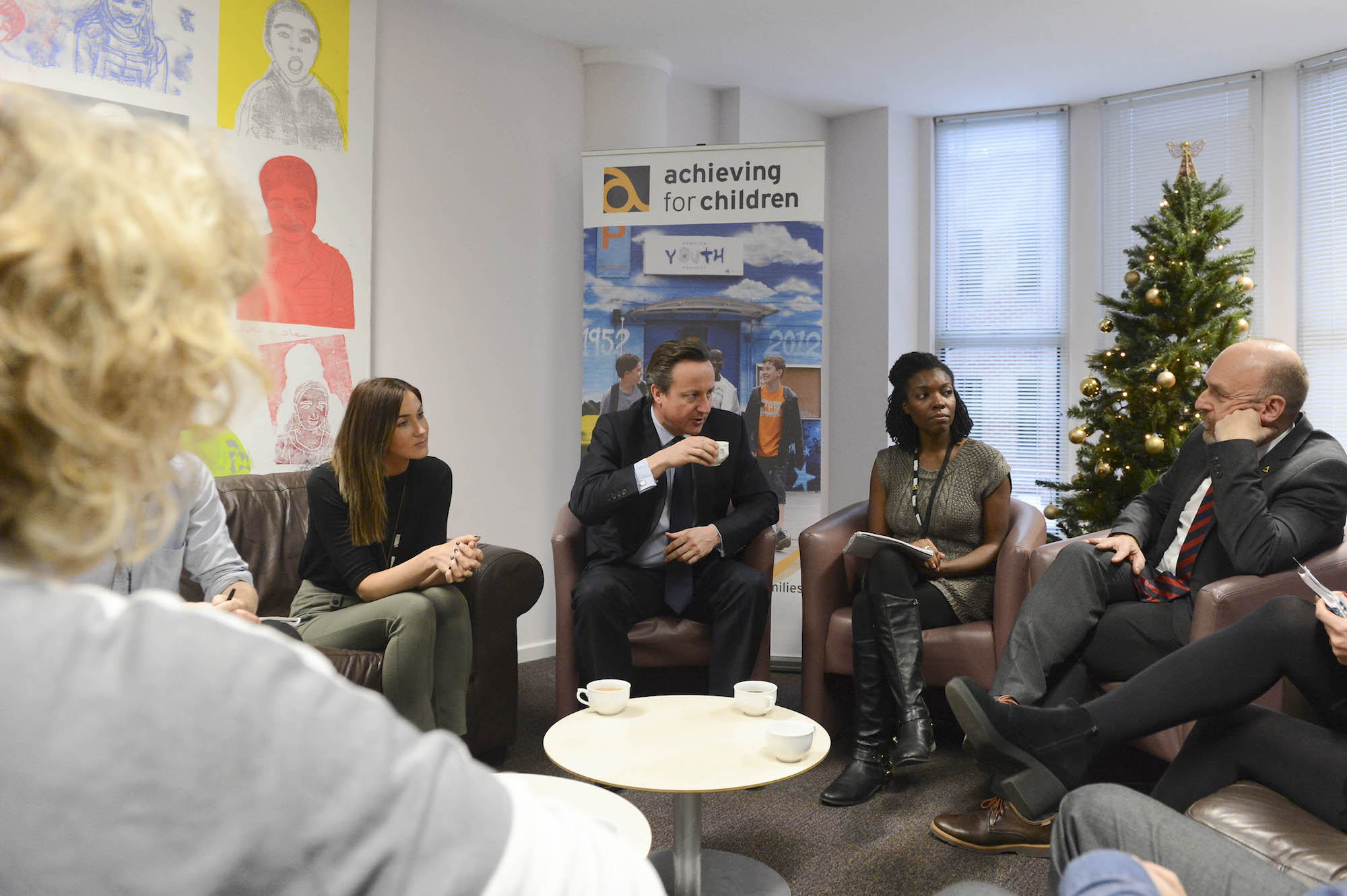David Cameron announces "landmark" reforms in children's services
Across the UK failing children’s services must improve, or they will be taken over by other high performing local authorities, independent charity providers or “spun out” into a newly formed organisation, the Prime Minister announced this week. Founder of Mutual Ventures Andrew Laird reflects on the implications of the announcement.
This week, Prime Minister David Cameron visited Achieving for Children, the trailblazing social enterprise which now delivers children’s services on behalf of both Kingston and Richmond Councils in the south of England. Children’s services are viewed by many as the last big unreformed area of local public service delivery and Cameron has clearly decided to shake things up.
In our view there will be two main drivers of reform for children’s services between now and the end of the current parliament in 2020. One is directive and one proactive – but both are likely to see more councils collaborating.
The first driver will be service quality which was the main thrust of the Prime Minister’s speech this week. “We will not stand by while children are let down by inadequate social services... This will be one of the big landmark reforms of this Parliament, as transformative as what we did in education in the last," he said.
He announced that local authority children’s services that fail persistently will be taken over by other high-performing local authorities, contracted out to an independent charity provider or 'spun out' into a newly formed organisation.

David Cameron talks with the Achieving for Children team
Councils such as Slough and Doncaster, who have underperformed, have already been directed by the Secretary of State to transfer services to an independent trust. This is to separate them from the rest of the council and allow breathing space for improvement. Cameron's speech made it clear that we can expect more directive action from central government when services are failing. The government is already engaging closely with Sunderland, Norfolk and Sandwell to explore new delivery models for their struggling services. Collaboration with neighbouring councils seems to be very much on the cards in these areas.
The second driver is the force of nature that is devolution. This is now the main driver of public service reform, as responsibility for the funding and delivery of local services is increasingly passed down the chain to towns, cities and regions. Increased financial autonomy will support this direction of travel and there is now a clear financial incentive for more authorities (and their partners) to seek a devolution deal, following the example of Greater Manchester, Cornwall, Sheffield, Merseyside and the West Midlands.
Devolution presents a proactive opportunity for neighbouring councils to join forces to deliver children’s services. Achieving for Children is an example of this collaboration (jointly owned by Kingston and Richmond councils) and it has had some early successes. For example, since the collaboration Kingston’s children’s services have seen an improved rating of “good” by the Office for Standards in Education, Children’s Services and Skills (OFSTED), which in the new regime is quite an achievement. Geographical collaboration via a new delivery model is also being actively discussed in Greater Manchester and behind the scenes in a number of other places.
I won’t rehearse the benefits of a well-planned and implemented alternative model or indeed the perils of a badly implemented one (I have discussed these previously) but any transition, proactive or reactive, faces similar challenges. Staff will be concerned about losing the safety net (real or imagined) of being a council employee. They may have concerns about scale if a combined service is proposed. Staff often have concerns that running a business will distract them too much from providing care. These (and others besides) are all valid concerns and must be addressed by a well-planned transition process and genuine staff engagement.
But we knew all of this already – what the Prime Minister's intervention this week has really done is crystalise the strategic challenge facing the leaders of children’s services across the country. They must judge whether they need to be proactive and perhaps look for collaboration opportunities to put their service on sustainable footing – or whether they are confident enough in their current single authority service to risk enforced intervention if service quality drops. It’s not an easy judgement to make but with both failing and excelling services looking at collaboration, it must at least be considered.
Photo credit: The Prime Minister's Office



